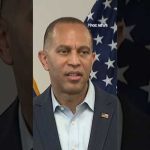Americans are finally seeing what many of us suspected all along: powerful figures inside the Biden administration leaned on Big Tech to silence speech they didn’t like. Alphabet’s own lawyers have now acknowledged repeated, sustained outreach from White House officials pressing YouTube about user content—some of which the company admits did not even violate its policies. That admission should unsettle every defender of free expression and demands a full accounting from those who thought they were above the Constitution.
This wasn’t a one-off conversation; it was a campaign of pressure during a national emergency, aimed at policing debate over COVID-19 and election questions. Google says those contacts were “unacceptable and wrong,” a rare corporate rebuke that speaks volumes about how out of bounds the administration’s conduct was. If the government can lean on private platforms to scrub inconvenient viewpoints, our civic square is no longer free.
Conservative voices and independent commentators paid the price: channels and accounts disappeared, while public debate was steered by unelected officials and hand-picked fact-checkers. Now, after pressure from Congress and scrutiny from the media, YouTube is rolling back some of those bans and even piloting a path to reinstate creators removed under pandemic and election-era policies. That reversal is long overdue, but it cannot erase the chilling effect of earlier government-led censorship.
Let’s be clear about who benefits from this revelation: those who want the federal government kept in its lane, and those who believe the First Amendment is not a suggestion. Republican investigators, led by the House Judiciary Committee, forced this moment into the light—and the responses from tech executives finally confirm what grassroots conservatives have been saying for years. Accountability isn’t partisan vindictiveness; it’s the restoration of a basic constitutional boundary.
This episode also exposes a cultural rot inside Silicon Valley, where corporate policy and political pressure too often merge into bureaucratic censorship. Executives like Mark Zuckerberg have admitted similar pressure at Meta, which means this wasn’t an isolated mistake but a systemic problem across platforms. Americans must demand clear, enforceable safeguards so that government officials can no longer whisper to content moderators and expect speech to vanish.
The next step has to be real reforms: statutory limits on government outreach to platforms, transparency over any communications, and a commitment from companies to protect lawful speech regardless of political pressure. Lawmakers on both sides should be alarmed when the executive branch treats private companies like extensions of its public-relations apparatus. If we allow this behavior to stand, tomorrow it could be used against any dissenting voice the ruling party finds inconvenient.
Patriots of every persuasion should insist that the internet remain a marketplace of ideas, not a sanitized transcript of government talking points. Restore the channels, restore trust, and restore the principle that Americans do not lose their rights just because a bureaucrat objects to their views. Our republic depends on it—because free speech isn’t just for agreeable ideas, it’s for the ones that make the powerful uncomfortable.




